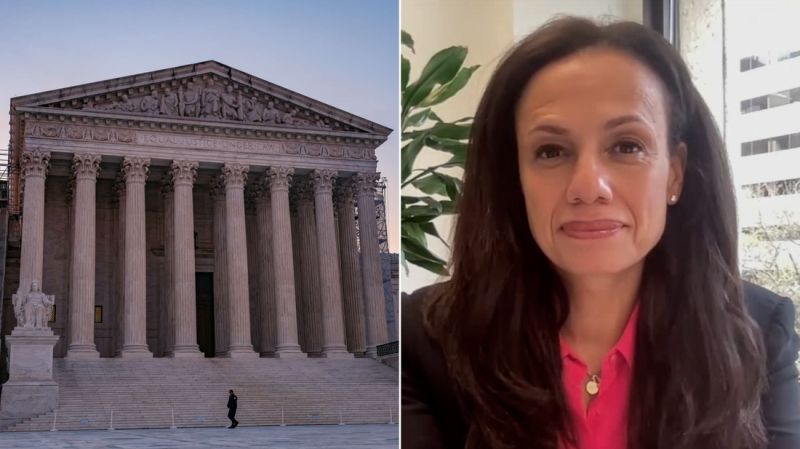In a recent interview with CNN, Planned Parenthood CEO Alexis McGill Johnson shared her observations from the oral arguments in the Supreme Court case regarding the abortion pill. McGill Johnson was inside the courtroom during the arguments and provided insights into how the Supreme Court justices reacted to the case. The case involves a challenge to a federal regulation that requires mifepristone, the abortion pill, to be obtained in person from a healthcare provider during the COVID-19 pandemic. McGill Johnson discussed the implications of the case and the potential impact on abortion access in the United States.
During the oral arguments, McGill Johnson noted that the Supreme Court justices appeared divided along ideological lines, with conservative justices expressing skepticism about the FDA’s decision to maintain restrictions on the abortion pill during the pandemic. McGill Johnson also mentioned that Justice Amy Coney Barrett seemed to ask more questions and engage with the arguments from both sides, which could signal her openness to considering the case carefully. However, McGill Johnson acknowledged that it is difficult to predict the outcome of the case based on the justices’ questions and reactions during oral arguments.
McGill Johnson emphasized the importance of abortion access and reproductive rights, stating that the FDA’s restrictions on the abortion pill create unnecessary barriers for patients seeking care. She highlighted the disparities in access to abortion services, particularly for low-income individuals and people living in rural areas. McGill Johnson expressed concerns about the impact of the Supreme Court case on abortion rights and emphasized the need to protect and expand access to safe and legal abortion services for all individuals, regardless of their circumstances.
As the CEO of Planned Parenthood, McGill Johnson plays a key role in advocating for reproductive rights and healthcare access. She underscored the organization’s commitment to fighting for abortion rights and ensuring that patients have access to comprehensive reproductive healthcare services. McGill Johnson also addressed the challenges faced by abortion providers and patients during the COVID-19 pandemic, including disruptions to healthcare services and restrictions on telehealth options for obtaining the abortion pill. She emphasized the need for policies that prioritize patients’ health and wellbeing while also protecting their reproductive rights.
The Supreme Court case involving the abortion pill underscores the ongoing debate and legal battles surrounding reproductive rights in the United States. McGill Johnson’s insights offer a glimpse into how the highest court in the country is considering this critical issue and the potential implications for abortion access. As the case continues to unfold, advocates and organizations like Planned Parenthood will continue to push for policies that protect and expand reproductive rights for all individuals. McGill Johnson’s perspective sheds light on the importance of ensuring that patients have access to safe and legal abortion care, regardless of external factors such as the COVID-19 pandemic or legal restrictions on abortion medications.
Overall, McGill Johnson’s observations from the Supreme Court oral arguments provide a valuable insight into the complexities of the abortion pill case and the broader implications for reproductive rights in the United States. As the CEO of Planned Parenthood, McGill Johnson’s perspective underscores the organization’s unwavering commitment to fighting for abortion rights and advocating for comprehensive reproductive healthcare services. The outcome of the Supreme Court case could have far-reaching consequences for abortion access, especially for marginalized communities and individuals facing barriers to care. McGill Johnson’s advocacy work and leadership exemplify the ongoing effort to protect and expand reproductive rights for all individuals in the United States.















